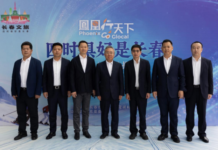(Isstories Editorial):- Santa Rosa Beach, Florida Nov 9, 2025 (Issuewire.com) – For nearly three decades, Brent Byng has lived a life defined by service,
leadership, and transformation. As a decorated U.S. Air Force officer and senior operations
executive, his journey reflects an evolution from the intensity of combat missions to the
complexities of modern organizational strategy. Today, Byng channels the lessons learned
from the skies into helping enterprises modernize, innovate, and thrive in dynamic
environments.
Building a Foundation in Service and Leadership
Brent Byng’s career began with a deep commitment to service and excellence. Over the
course of 27 years in the U.S. Air Force, he cultivated a leadership philosophy rooted in
accountability, discipline, and empathy. From his early years as a flight officer to his role as
Commander of the 19th Special Operations Squadron, Byng consistently focused on
building high-performing teams and achieving measurable results.
More on Isstories:
- Top 10 Pressure/Temperature Process Calibrator Manufacturer: Jetronl Showcases Innovation at MICONEX
- Gear Up Before the Season Ends: Hansen Surfboards’ Epic 30-50% Off End-of-Winter Snow Sale in Encinitas Hits the Slopes!
- XRP Crashes to $1.28, While KT DeFi Users Earn Up to $3,000 a Day
- Top 10 Modular Power Supplier: Jetronl Provides System Integration Solution for the New Energy Industry
- Jetronl Instruments: Top 10 Digit Multimeter Supplier – Accurate, Reliable, and High-Performance
As Commander, he led more than 300 personnel and managed a $99.6 million flight-hour
portfolio, overseeing the training and graduation of over 2,700 mission-ready operators each year. His ability to combine strategic thinking with practical execution became one of his greatest strengths. “Leadership is about clarity and consistency,” Byng has said. “When
people understand the mission and trust your intent, they’ll give their best every time.”
His tenure as Commander was marked by forward-thinking innovation. Byng integrated
advanced training technologies, including simulation and virtual reality systems, to enhance the efficiency and quality of instruction. These tools not only reduced the workload for instructors but also improved knowledge retention and operational readiness. The results were clear–better training outcomes, faster preparation times, and stronger team cohesion.
From Combat Missions to Strategic Transformation
Byng’s experience extends far beyond tactical leadership. With more than 2,000 flight hours, half of them in combat, he understands the importance of adaptability and focus in high- pressure environments. Those experiences in the air taught him lessons that continue to shape his approach to enterprise leadership today.
“Combat teaches you to stay calm under pressure and make decisions with incomplete
information,” he explains. “In business, the conditions are different, but the principles are the same. You must analyze, decide, and act decisively while maintaining the confidence of your team.”
Transitioning from military operations to strategic leadership, Byng served as Special
Assistant to the Chairman of the Joint Chiefs of Staff at the Pentagon. In that position, he
worked directly with senior defense leaders, White House officials, and international
partners. His role required not only operational expertise but also diplomacy, strategic
thinking, and an understanding of global systems.
During his time at the Pentagon, Byng coordinated multinational initiatives that strengthened alliances and expanded cooperation across more than 20 nations. His work helped shape global security policies and advanced shared objectives between allied partners. The experience honed his ability to lead within complex, interconnected systems–an ability that translates seamlessly into the modern corporate landscape.
Applying Military Precision to Business Transformation
As organizations face rapid technological advancement and shifting market demands, Brent
Byng’s approach to leadership offers a clear blueprint for transformation. He draws on his
military background to help organizations streamline operations, implement data-driven
strategies, and develop resilient leadership teams.
“Military precision doesn’t mean rigidity,” he explains. “It means discipline and adaptability
working together. In modern enterprises, success depends on aligning people, processes,
and technology to achieve consistent results.”
Byng has become known for his ability to connect vision with execution. His leadership
emphasizes transparency, collaboration, and measurable outcomes. He encourages
organizations to invest in modern tools that improve efficiency while maintaining a strong
human-centered culture. “Technology can transform organizations,” he says, “but it must be guided by values and vision. Innovation without purpose doesn’t last.”
This balance between innovation and integrity defines Byng’s leadership philosophy. His
strategic insight allows him to view modernization not just as a technological upgrade, but as a cultural shift–one that requires empathy, accountability, and communication.
Lifelong Learning and the Pursuit of Excellence
Brent Byng’s journey is also one of continuous learning. He holds a Master of Science in
Operations Management from the University of Arkansas, where he graduated summa cum
laude, and a Master of Military Operational Art and Science from Air University. He is
currently pursuing a Doctor of Strategic Leadership at Liberty University, further deepening
his understanding of organizational systems and change management.
For Byng, education is not just a personal pursuit but a leadership responsibility. “Leaders
who stop learning stop growing,” he says. “If you want to inspire innovation, you must model it.” His academic and professional experiences complement one another, allowing him to merge theoretical knowledge with real-world application.
His studies in strategic leadership focus on building organizations that are adaptable,
ethically grounded, and mission-driven. He views leadership as a balance between authority and service, where success is measured by how well an organization empowers its people.
Mentorship and the Power of People
Throughout his career, Byng has been recognized not only for his operational achievements
but also for his ability to mentor and develop future leaders. Whether guiding young officers in the military or advising professionals in the private sector, he places mentorship at the center of his leadership philosophy.
He believes that effective leaders are those who invest in their people. “Mentorship builds
confidence and continuity,” he explains. “It ensures that when you step away, the
organization continues to thrive.” Byng’s mentorship approach focuses on fostering
accountability, encouraging initiative, and nurturing critical thinking.
His impact is reflected in the success of those he has guided. Many of his former
subordinates have gone on to lead their own teams, carrying forward the lessons and values he instilled. For Byng, this continuity of leadership represents the most meaningful measure of success.
A Legacy of Service and Modernization
Brent Byng’s story is one of transformation on multiple levels–personal, professional, and
institutional. His career demonstrates that leadership grounded in service and discipline can thrive in any environment, whether in the cockpit of an aircraft or the boardroom of a global enterprise.
As he transitions into new leadership opportunities in the private sector, Byng remains
committed to his core principles: serve others, drive innovation, and lead with integrity. His
unique blend of operational experience, strategic vision, and academic rigor positions him as a model for modern leaders navigating complex challenges.
“Whether in combat or in business, leadership is about people,” he reflects. “If you take care of your people, they’ll take care of the mission. That’s the foundation of success.”
Looking Ahead
As organizations continue to evolve, leaders like Brent Byng will play a crucial role in
bridging traditional principles with modern innovation. His journey from combat missions to
enterprise modernization proves that leadership excellence transcends industries and
generations.
Byng’s story serves as a powerful reminder that true leadership is not defined by position or power, but by purpose and service. His legacy continues to inspire those who seek to lead with both courage and compassion–whether on the battlefield or in the boardroom.
For more information, please feel free to visit






















